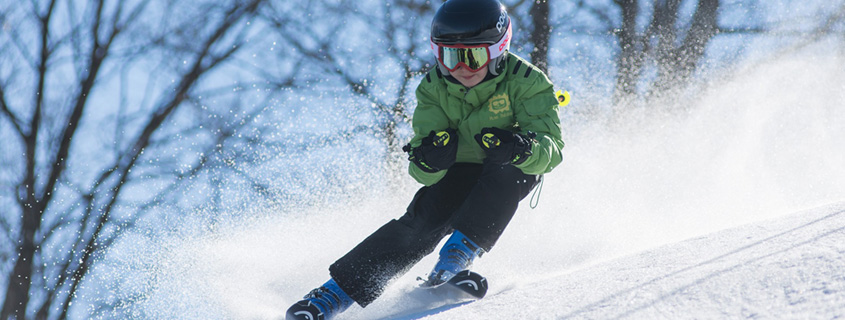ACL Injuries in Children and Adolescents
Article Featured on Nationwide Children’s
It has been frequently emphasized that children are not simply “small adults.” Children and adults are different anatomically and physiologically in many ways. Knee injuries in children and adolescents frequently demonstrate these differences.
The primary difference between an adult and child knee is the growth center or physis. These are regions at the end of the femur and tibia on both sides of the knee that provide most of the growth of the leg. The physes are usually the weakest part of the knee. The same injury pattern that would tear a ligament or cartilage in a mature, adult knee is much more likely to fracture the bones through the growth center in a child’s knee.
“Adult” type knee injuries can, however, occur in the child. Anterior cruciate ligament (ACL) tears, were once thought to be extremely rare in children, but are now receiving more attention in recent years. It is unknown whether or not the rise in the number of reported ACL tears are recently related to increased awareness by physicians, better diagnostic techniques, such as MRI and arthroscopy, or that possibly more kids are involved in competitive sports. The true occurrence of ACL tears in the pediatric population is unknown, but injuries most often occur in non-contact circumstances specifically during activity that involves deceleration or change of direction forces. Often one may describe feeling a ‘pop’ at the time of injury and swelling of the knee is common within 6 hours.
Treatment of ACL Injuries
The treatment of ACL tears in the young, athletic, skeletally mature (adult) knee is usually reconstruction. A tendon is usually taken from another part of the body and used to rebuild the torn ligament. Non-operative treatment with braces and exercise usually fails. These patients frequently have “giving way” episodes with tearing of other structures, usually meniscal cartilage. This may lead to premature arthritis later in life.
This reconstructive procedure usually involves placing the tendon graft through drill holes in the femur and tibia. Unfortunately for younger patients, the growth centers in the knee are directly in the path of these drill holes. It has been shown that standard reconstruction in the growing child or adolescent may cause a growth abnormality leading to leg length inequality, or to angulatory deformity at the knee. The younger the child, the greater the chance of deformity, and the more severe the deformity is likely to be.
If the adolescent is within a year or two of skeletal maturity, most physicians feel the risks are small, and a standard ACL reconstruction is usually performed. However, for younger patients, alternative techniques have been developed recently to try to lessen the possibilities of growth arrest. These techniques involve placing the graft in a non-anatomic position, or one that does not completely duplicate normal ligament function. This is done by either drilling holes that go around rather than through the growth centers, or by avoiding holes altogether, and wrapping the graft around the bone. These procedures were originally designed to be a temporary measure to control symptoms and instability until maturity, when a traditional reconstruction could be done. The results of these procedures have been good, however, with over 95% of children returning to sports and not needing a later procedure.
Orthopedic & Sports Medicine Center of Oregon is an award-winning, board-certified orthopedic group located in downtown Portland Oregon. We utilize both surgical and nonsurgical means to treat musculoskeletal trauma, spine diseases, sports injuries, degenerative diseases, infections, tumors and congenital disorders.
Our mission is to return our patients back to pain-free mobility and full strength as quickly and painlessly as possible using both surgical and non-surgical orthopedic procedures.
Our expert physicians provide leading-edge, comprehensive care in the diagnosis and treatment of orthopedic conditions, including total joint replacement and sports medicine. We apply the latest state-of-the-art techniques in order to return our patients to their active lifestyle.
If you’re looking for compassionate, expert orthopedic surgeons in Portland Oregon, contact OSM today.
Phone:
503-224-8399
Address
17355 Lower Boones Ferry Rd Suite 100A
Lake Oswego, OR 97035
Hours
Monday–Friday
8:00am – 4:30pm



